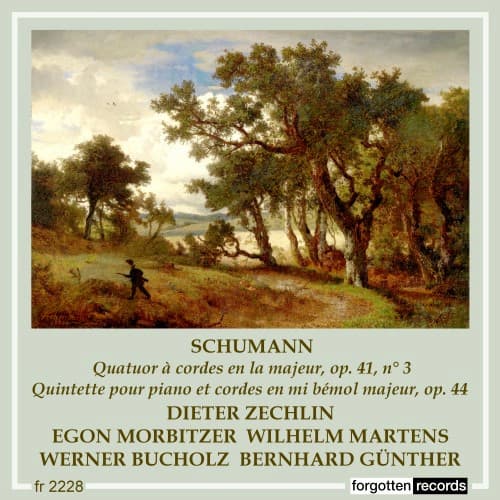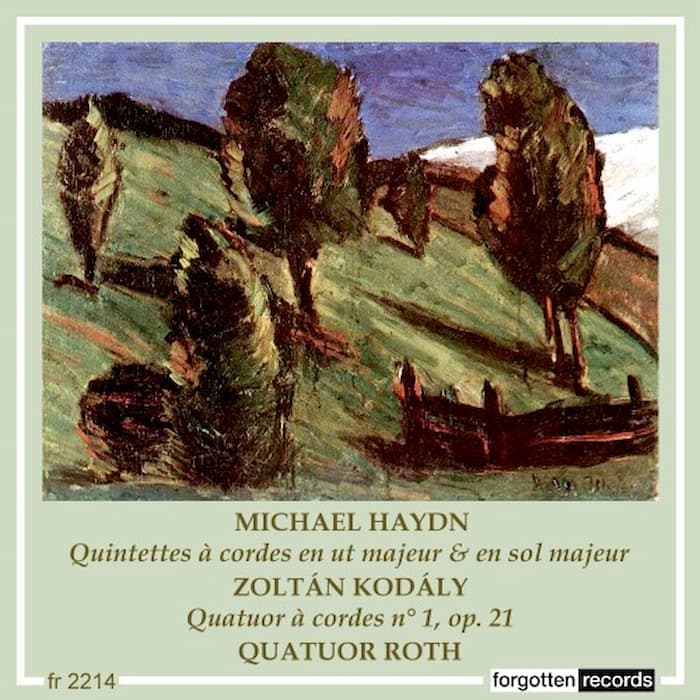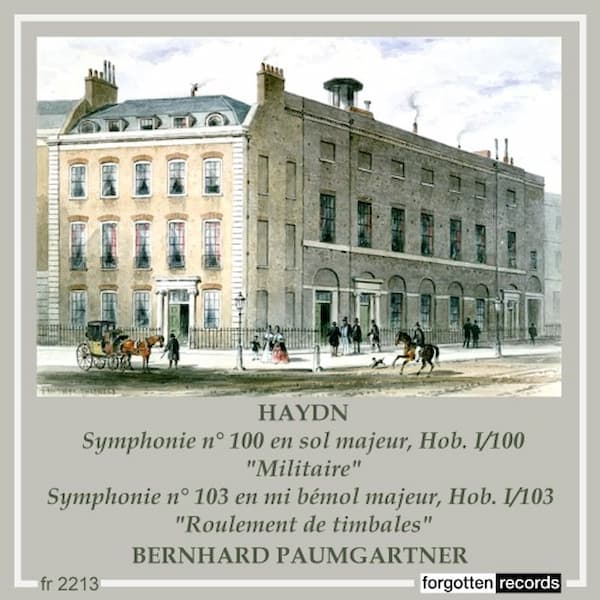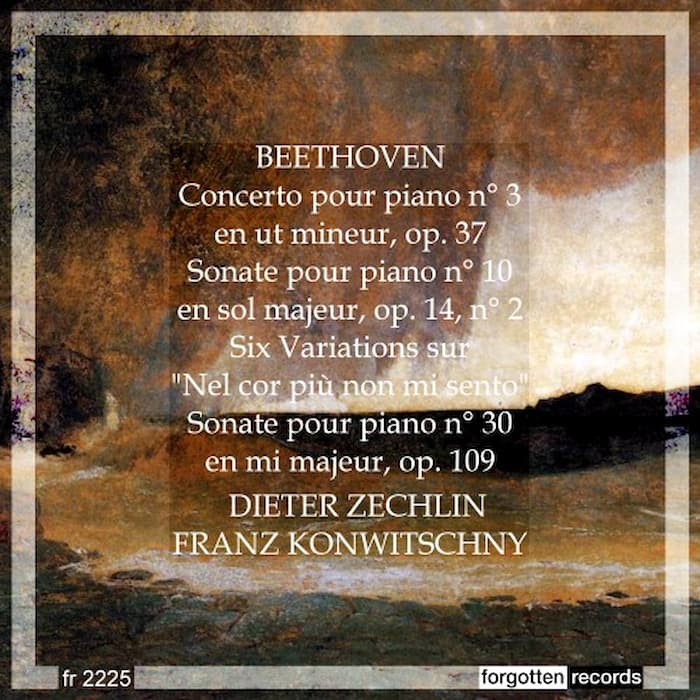It was easy for the numerous piano virtuosos of the 19th century to continue to write perfect and exquisite miniatures for their own instrument. Robert Schumann, on the other hand, writing from his platform in the Neue Zeitschrift für Musik, challenged his contemporaries to write ‘higher forms’ of composition – symphonies, chamber music, concertos, etc. After his own excursion into the world of miniatures with Papillons, Carnaval, and Davidsbündlertänze, Schumann took up his own challenge, first with his 1840 ‘Liederjahr’ and the next year with his experiments with orchestral and chamber music.

Joseph Kriehuber: Robert Schumann, 1839 (Gallica: btv1b8424855k)
His three string quartets, Op. 41, come from his 1842 chamber music period and were given their premieres in January 1843, although not published until 1848.
In his writings in early 1842, Schumann mentioned having ‘continual quartet thoughts’ and studying the quartets of the great Viennese composers: Haydn, Mozart, and Beethoven. He’d heard Beethoven’s late quartets in 1837, and they seemed to be beyond anything he’d yet experienced in music. He attempted two quartets at that time, but they do not seem to have survived beyond fragments.
Throughout the three quartets, Schumann made a parallel play between the tonal centres of A (major and minor) and F major, an unusual pairing. In the Finale of Op. 41/3, Schumann not only uses the A/a/F pairing but also uses the rondo format of the movement to create a unique structure where ‘the second half of the structure paralleled and reinterpreted the first half’.
This kind of parallel structure was seen in Schumann’s piano works of the 1830s, particularly his large-scale ones, but it shows that in his pursuit of ‘higher forms’, he did not forget the unique structures he’d already created for his miniatures. In this case, ‘the future should be the higher echo of the past’.
Robert Schumann: String Quartet in A major, Op. 41 No. 3 – IV. Finale
This recording was made in 1959 with Egon Morbitzer and Wilhelm Martens (violin), Werner Buchholz (viola), and Bernhard Günther (cello).

Performed by
Egon Morbitzer
Wilhelm Martens
Werner Buchholz
Bernhard Günther
Recorded in 1959
Official Website
For more of the best in classical music, sign up for our E-Newsletter



